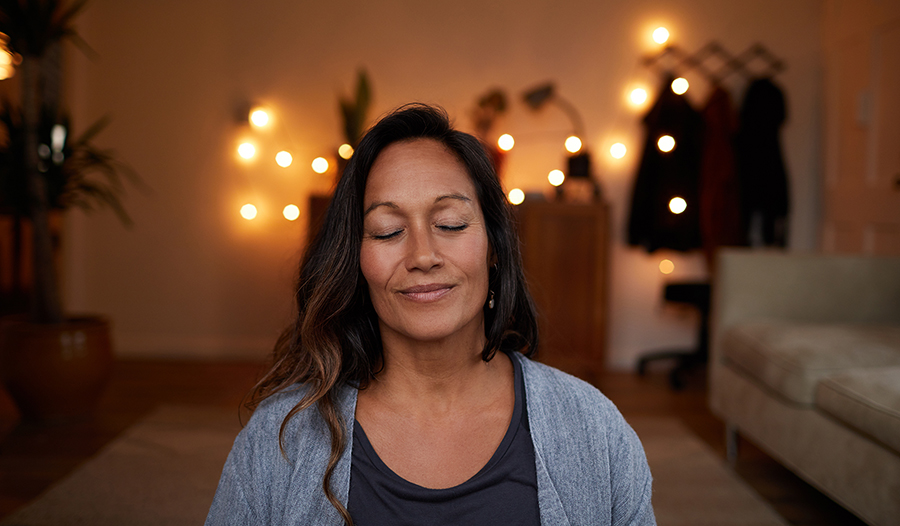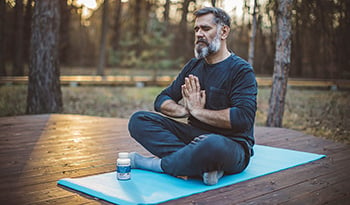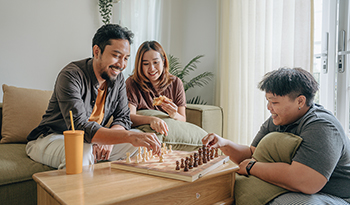8 Natural Supplements for Supporting Mindfulness

What Is Mindfulness?
In research, mindfulness has often been associated with a positive impact on mental health and psychological well being. It’s defined as a mental state that focuses awareness in the present. Often mindfulness comes with an awareness of your thoughts, feelings, and emotions without judgment.
Mindfulness has been practiced for thousands of years, having roots in the Buddhist faith. In the Western Hemisphere, mindfulness has been correlated with Jon Kabat-Zinn since the 1970s. Kabat-Zinn encouraged physicians to refer patients who were experiencing chronic pain. He coined the term “Mindfulness-Based Stress Reduction” and found his technique very successful for a variety of different ailments.
The Mindfulness ABCs
Learning mindfulness can be simply explained by “the Mindfulness ABCs”. The letter A stands for awareness. When learning this technique, a body scan is usually the first step. As mindfulness students learn to scan the body, they might be told to mentally focus on their legs, then their feet, etc. When their mind naturally wanders, they are told to come back to thinking about their body. This helps to train the mind to be present.
The letter B stands for being present. Often, our natural reaction is to push away an unwanted experience or emotion. This protective reaction allows us to avoid the situation we’d rather not deal with. In being present with an experience or emotion, we are practicing acceptance of something uncomfortable and letting it happen.
Lastly, the letter C stands for choices. By being aware of when our mind wanders and training it to be present, we can choose to be present. These two first steps allow us to make better choices when we are faced with difficult emotions or decisions.
Mindfulness has been used clinically as a tool to work through depressive mood and anxiety symptoms. It can be used to change the relationship someone has with certain thoughts and emotions that may be barriers to goals or to moving forward in life.
What Can Happen If I Don’t Practice Mindfulness?
A study by psychologists looking at the effects of mindfulness on depressive and anxiety symptoms noted that practicing mindfulness resulted in a decrease in these symptoms. It found that suppression of emotions, reappraisal, worry, and rumination were possible contributors to depressive and anxiety symptoms.
Emotional suppression has long been linked to poor health. It’s as if not dealing with or accepting negative emotions can hurt your body. Emotional reappraisal is more commonly known as reframing or looking at something in a new way so a negative response isn’t elicited.
A relatable example is when someone cuts you off in traffic. You may respond by thinking the person is entitled and inconsiderate; you may even yell at this driver. If you reframe the situation and think “Wow, this person must be overwhelmed and stressed to not pay attention. I can relate to that.” Then you let it go. This reframe allows you to not have the negative emotion or the stress that comes with that emotion.
Worry is our response to danger, while rumination is a concern of loss and failure. Studies have shown that worry can correlate with anxiety symptoms and the inability to regulate strong emotions. Rumination, on the other hand, is associated with depressive symptoms and is defined as the repetitively thinking about negative consequences.
Without a practice of mindfulness, it may be easy to slip into these mediators of depression and anxiety symptoms.
What Lifestyle Adjustments Can I Make to Support Mindfulness?
Physical activities like yoga, exercise, and Tai Chi have been studied for their usefulness in supporting mindfulness. A positive correlation has been seen between these activities and the reduction of anxiety symptoms.
Avoiding caffeine, alcohol, and nicotine has shown similar benefits. Focusing on nutrient-dense foods in your diet and using dietary supplements can also support mindfulness.
8 Supplements to Support Mindfulness
Many supplements can help to support mindfulness, including L-theanine, Ashwagandha, Blueberry extract, GABA, Rhodiola, Phosphatidylserine, Ginkgo biloba, and Bacopa.
L-Theanine and Stress Reduction
L-theanine is an amino acid found in green tea. This compound may have protective effects, as it is high in antioxidants. It may also reduce the effects of stress on the way we think and reduce anxiety symptoms.
L-theanine is also cited as a compound that helps to support a healthy attention span, and it may support a healthy sleep cycle.
Ashwagandha and Anxiety Support
Ashwagandha, also known by its Latin name Withania somnifera, is a well-known herb categorized as an adaptogen.
Adaptogenic herbs help to support healthy levels of cortisol, our stress hormone, in the body. Ashwagandha has been studied to support symptoms of stress and anxiety. It also can support a healthy inflammatory response and has antioxidant properties.
Blueberry Extract’s Neuroprotective Effect
Blueberry extracts have been long studied for their neuroprotective characteristics. Vaccinium angustifolium, or wild blueberry extract, is rich in antioxidants like polyphenols.
The antioxidants found in blueberries may prevent damages to our central nervous system from unhealthy levels of inflammation due to anxiety or depression symptoms. These extracts are also theorized to support learning and memory.
GABA’s Calming Role
Gamma-aminobutyrate acid (GABA) is an amino acid that acts as a calming neurotransmitter. This compound is thought to act on a part of the brain called the amygdala, which plays a role in emotion and behavior.
It has been theorized that anxiety symptoms may come from too many excitatory neurotransmitters being released or greater sensitivity to these neurotransmitters. GABA may help to balance these excitatory compounds in the brain and exert a calming effect.
Rhodiola and Memory Support
Rhodiola, or Rhodiola rosea, is an adaptogenic herb similar to ashwagandha, but it has unique properties of its own.
This herb has been studied as a support for memory and learning and has been shown to potentially reduce anxiety symptoms. It has also been theorized to support concentration, reduce mental fatigue, and its antioxidant properties may prevent damage to important nervous tissue.
Phosphatidylserine and Neuron Construction
Phosphatidylserine is an essential phospholipid or fat that helps construct neurons or brain cells. This compound is the most abundant fat in the brain.
A reduction in phosphatidylserine has been correlated with decreased attention span, learning, and cognitive processing. The body understands the importance of this fat, so its creation is highly regulated to make sure the brain has enough to function at its best.
Ginkgo and Blood Flow
Ginkgo, or Ginkgo biloba, is an extract of the Maidenhair tree, which is indigenous to Asia. This plant is rich in flavonoids containing antioxidant properties.
Research theorizes that Ginkgo extract may support cognition by encouraging healthy blood flow to the brain. Flavonoids may protect against damage to brain tissue and may support healthy neurotransmitter production.
Bacopa and Healthy Cognition
Bacopa, or Bacopa monnieri, is a native plant to India and parts of Asia. It may help to support healthy cognition, memory, and learning. Bacopa may also have a role in reducing anxiety symptoms.
Its antioxidant properties give it the ability to support a healthy inflammatory response.
Mindfulness seems to be a good solution to mitigating the effects of negative thoughts and events in our lives. Thankfully there are lifestyle and supplement recommendations to support this process.
References:
- Hayes, AM., Feldman, G. Clarifying the construct of mindfulness in the context of emotion regulation and the process of change in therapy. Clinical Psychology: Science and Practice. 2004;11:255–262.
- Groves, P. Mindfulness in psychiatry - where are we now?. BJPsych Bull. 2016;40(6):289-292. doi:10.1192/pb.bp.115.052993
- Friedman, J. R., & Nunnari, J. (2014). Mitochondrial form and function. Nature, 505(7483), 335-343.
- Missiroli, S., Genovese, I., Perrone, M., Vezzani, B., Vitto, V., & Giorgi, C. (2020). The role of mitochondria in inflammation: From cancer to neurodegenerative disorders. Journal of Clinical Medicine, 9(3), 740.
- Parmentier, FBR., García-Toro, M., García-Campayo, J., Yañez, AM., Andrés, P., Gili, M. Mindfulness and symptoms of depression and anxiety in the general population: The mediating roles of worry, rumination, reappraisal and suppression. Front Psychol. 2019;10:506. Published 2019 Mar 8. doi:10.3389/fpsyg.2019.00506
- Chapman, BP., Fiscella, K., Kawachi, I., Duberstein, P., Muennig, P. Emotion suppression and mortality risk over a 12-year follow-up. J Psychosom Res. 2013;75(4):381-385. doi:10.1016/j.jpsychores.2013.07.014
- Buhle, JT., Silvers, JA., Wager, TD., et al. Cognitive reappraisal of emotion: A meta-analysis of human neuroimaging studies. Cereb Cortex. 2014;24(11):2981-2990. doi:10.1093/cercor/bht154
- Newman, MG., Llera, SJ., Erickson, TM., Przeworski, A., Castonguay, LG. Worry and generalized anxiety disorder: A review and theoretical synthesis of evidence on nature, etiology, mechanisms, and treatment. Annu Rev Clin Psychol. 2013;9:275-297. doi:10.1146/annurev-clinpsy-050212-185544
- Smith, JM., Alloy, LB. A roadmap to rumination: a review of the definition, assessment, and conceptualization of this multifaceted construct. Clin Psychol Rev. 2009;29(2):116-128. doi:10.1016/j.cpr.2008.10.003
- Sarris, J., Moylan, S., Camfield, DA., et al. Complementary medicine, exercise, meditation, diet, and lifestyle modification for anxiety disorders: A review of current evidence. Evid Based Complement Alternat Med. 2012;2012:809653. doi:10.1155/2012/809653
- Hidese, S., Ogawa, S., Ota, M., et al. Effects of L-Theanine administration on stress-related symptoms and cognitive functions in healthy adults: A randomized controlled trial. Nutrients. 2019;11(10):2362. Published 2019 Oct 3. doi:10.3390/nu11102362
- Pratte, MA., Nanavati, KB., Young, V., Morley, CP. An alternative treatment for anxiety: a systematic review of human trial results reported for the Ayurvedic herb ashwagandha (Withania somnifera). J Altern Complement Med. 2014;20(12):901-908. doi:10.1089/acm.2014.0177
- Papandreou, MA., Dimakopoulou, A., Linardaki, ZI., et al. Effect of a polyphenol-rich wild blueberry extract on cognitive performance of mice, brain antioxidant markers and acetylcholinesterase activity. Behav Brain Res. 2009;198(2):352-358. doi:10.1016/j.bbr.2008.11.013
- Nuss, P. Anxiety disorders and GABA neurotransmission: A disturbance of modulation. Neuropsychiatr Dis Treat. 2015;11:165-175. Published 2015 Jan 17. doi:10.2147/NDT.S58841
- Ma, GP., Zheng, Q., Xu, MB., et al. Rhodiola rosea L. improves learning and memory function: Preclinical evidence and possible mechanisms. Front Pharmacol. 2018;9:1415. Published 2018 Dec 4. doi:10.3389/fphar.2018.01415
- Kim, HY., Huang, BX., Spector, AA. Phosphatidylserine in the brain: metabolism and function. Prog Lipid Res. 2014;56:1-18. doi:10.1016/j.plipres.2014.06.002
- Lee, H., Birks, JS. Ginkgo biloba for cognitive improvement in healthy individuals. Cochrane Database Syst Rev. 2018;2018(8):CD004671. Published 2018 Aug 3. doi:10.1002/14651858.CD004671.pub2
- Kumar, N., Abichandani, LG., Thawani, V., Gharpure, KJ., Naidu, MU., Venkat Ramana, G. Efficacy of standardized extract of bacopa monnieri (Bacognize®) on cognitive functions of medical students: A six-week, randomized placebo-controlled trial. Evid Based Complement Alternat Med. 2016;2016:4103423. doi:10.1155/2016/4103423
DISCLAIMER:This Wellness Hub does not intend to provide diagnosis...















































































 Table of Contents
Table of Contents
















